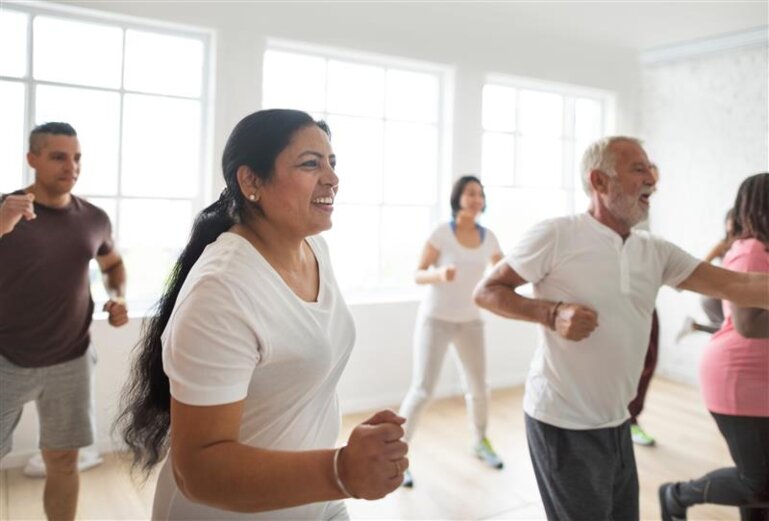Author: Dr Evandro de Azambuja Institut Jules Bordet, Brussels, Belgium
Treatment disruptions are stressful for patients. A prospective French study in patients with solid/haematological malignancies receiving treatment at two cancer centres found that 27% of 621 patients had treatment modifications during lockdown and that severe post-traumatic stress was more common in patients with compared to those without modifications (27% versus 19%; p=0.049) (Abstract LBA69). Although it involved relatively small numbers of caregivers (n=73) and was conducted in only two centres, its planned follow-up surveys (3 and 6 months) will be valuable in illustrating how the picture of care and psychological distress changes over the course of the pandemic. Perhaps more interesting in this study is the finding that perceived stress scores were higher among caregivers than patients (p=0.035), although there was a high level of professional accomplishment among caregivers.
These apparently conflicting findings of satisfactory performance despite increased stress were also reported in the ESMO Resilience Task Force surveys and probably reflect the need of individuals to adapt to providing appropriate patient care in such demanding circumstances (Abstract LBA70_PR). The ESMO survey also revealed worrying data that only 45% of the many oncology professionals redeployed during the crisis had received appropriate training.
Delays or cancellations in surgery and chemotherapy in >10% of all patients occurred at 34.0% and 22.0% of oncology centres, respectively, in a survey of 109 representatives from centres in 18 countries (Abstract LBA76_PR) and are in line with what we now know about the early days of the pandemic. What is surprising, however, is that following the widespread use of teleconsultations during the peak of the pandemic, 82% of survey respondents expect to continue using this approach. Telemedicine is not a replacement for face-to-face visits – provided that appropriate hygiene measures are in place to ensure patient and caregiver safety – and in most centres it should be reserved only for very exceptional cases. At our centre, clinical visits have resumed almost to pre-COVID-19 levels. The survey also reported that 37% of centres expected to reduce their clinical trial research activities. At the onset of the crisis, trial sponsors rapidly recognised that disruptions to clinical research were likely to occur and sought ways to minimise the effects, for example by adapting protocols. Following a decrease in activity in the first period of the pandemic, trial activities are now quickly returning to full strength, at least in Europe. Some long-term impact of the disruption on recruitment, and ultimately delays in drug approvals, cannot be ruled out. However, it is likely that this will be limited to large international trials – particularly those involving some of the more severely affected countries – as a result of the phased impact of COVID-19 across geographical regions.
The disproportionate effect of COVID-19 on Black and Hispanic patients was highlighted by a COVID-19 and Cancer Outcomes Study (CCOS) in 2,365 patients at two US cancer centres (Abstract LBA74). While there was no difference before versus after March 2–6 2020 in the reduction of in-person visits between White, Black and Hispanic patients, a compensatory increase in telehealth visits was 30% less likely in Black (adjusted odds ratio [aOR] 0.69) and Hispanic (aOR 0.71), compared with White, patients. This is despite the fact that a COVID-19 diagnosis was nearly doubled in Black patients (aOR 1.86) and more than tripled in Hispanic patients (aOR 3.19) compared with White patients. The authors’ suggestions – that the existing racial, ethnic and socioeconomic barriers to healthcare have been exacerbated in this time of COVID-19 – should serve to motivate healthcare professionals to find better ways to manage cancer patients in these underserved populations.
Is the oncology community ready for a potential resurgence of COVID-19 infections? Building on the important lessons we have learned from studies like those presented at ESMO Virtual Congress 2020 and published in the literature earlier this year, we can shape strategies adopted during the first wave, such as adapted drug administration schedules, to minimise risk and provide continuous, appropriate treatment to our patients. In case of a second wave of infections, we are much more prepared to face it.
Abstract and session details
-
Jerusalem G et al. Expected medium and long term impact of the COVID-19 outbreak in oncology. ESMO Virtual Congress 2020, LBA76_PR
Mini Oral - SARS-CoV-2 and cancer 1, 18.09.2020
-
Joly F et al. Impact of the COVID-19 pandemic on management of medical cancer treatments and psychological consequence for the patients. ESMO Virtual Congress 2020, LBA69
Proffered Paper - SARS-CoV-2 and cancer 1, 19.09.2020, h. 14:25 - 16:05, Channel 3
-
Banerjee S et al. The impact of COVID-19 on oncology professionals: results of the ESMO Resilience Task Force Survey collaboration. ESMO Virtual Congress 2020, Abstract LBA70_PR
Proffered Paper - SARS-CoV-2 and cancer 1, 19.09.2020, h. 14:25 - 16:05, Channel 3
-
Doroshow D et al. Disparities in cancer during the COVID-19 pandemic: COVID-19 and Cancer Outcomes Study (CCOS). ESMO Virtual Congress 2020, LBA74
Proffered Paper - SARS-CoV-2 and cancer 2, 20.09.2020, h. 16:20 - 18:00, Channel 2






